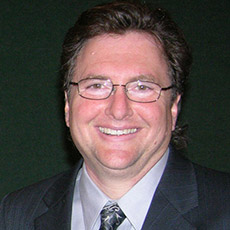Bruce Ellis
 Professor, Developmental Psychology, Health Psychology
Professor, Developmental Psychology, Health Psychology
E-mail: bruce.ellis@psych.utah.edu
Dr. Ellis's research focuses on the impact of fathers, family relationships, and socioecological conditions on children's biological stress responses, timing of pubertal development, risky adolescent behaviora nd cognition, and related health outcomes.
Media Coverage
Ellis, B. J., Bianchi, J.M., Griskevicius, V., & Frankenhuis, W. E. (2017). Beyond Risk and Protective Factors: An Adaptation-Based Approach to Resilience. Perspectives on Psychological Science, 12 (4), 561-587.
 July 10, 2017
July 10, 2017
Resilient Kids
Dr. Ellis proposes that children fine-tune their abilities to match the world they grow up in, which can result in their obtaining enhanced stress-adapted skills. These children may then perform better on tasks involving situations and relationship that are relevant to them, such as social dominance. July 20, 2017
July 20, 2017
University of Utah Professor Asks Could Stressful Environments Have Positive Outcomes On Kids?
Dr. Ellis published a study in Perspectives on Psychological Science that shows kids who grow up under conditions of disadvantage can develop specialized skills and abilities that are relevant to surviving and thriving in those environments.
 July 12, 2017
July 12, 2017
Childhood stress can yield valuable skills
Dr. Ellis provides an alternative to the thinking that at-risk youth are somehow broken and need to be fixed. His finding is that stress does not impair development but is more likely to direct or regulate it toward strategies taht are adaptive under stressful conditions.
Read story: http://www.futurity.org/stress-children-environment-1482422/
 July 6, 2017
July 6, 2017
There Are Actually Some Advantages To Being An At-Risk Kid
Dr. Ellis conducted a study using both human and animal research to test whether a specific and measurable skill could develop as a result of stressful conditions. He found that children develop stress-adapted advantages such as enhanced attention shifting, working memory, empathic accuracy, and detection of angry faces.
Read story: https://www.fatherly.com/health-science/adaptive-advantages-childhood-stress/
SCIENCE NEWSLINE
July 6, 2017
Finding what's right with children who grow up in high-stress environments
Dr. Ellis is working to understand children's stress-adapted skills and then focus on how to leverage those abilities to enhance learning, intervention and developmental outcomes.
Read story http://www.sciencenewsline.com/news/2017070616500090.html
or
https://medicalxpress.com/news/2017-07-children-high-stress-environments.html
CARLISLE WELLNESS NETWORK
July 7, 2017
Growing Up in High Stress Environment is Tough But Some Aspects Benefit Kids
Dr. Ellis and his research show that growing up in a high stress environment may not be a totally negative experience for children because it allows them to develop unique strengths and abilities.
 August 22, 2017
August 22, 2017
Researchers: Ask "what's right?" - not "what's wrong?" - with kids from poor, stressful backgrounds
Dr. Ellis questions the existing intervention strategies that aim to get children from high-risk backgrounds to act and think more like youth from more sable backgrounds.
BYU RADIO
July 18, 2017
Top of Mind with Julie Rose -- Stress Develops Strengths
Read story
https://www.byuradio.org/episode/598af646-11e3-466e-843d-86ffda3e2c33
April 2017
Can a Difficult Childhood Enhance Cognition?
Read story
April 2017
How a Difficult Childhood Helps You Respond to Tricky Situations
Read story
March 2017
Growing Up In A Stressful Environment Might Help You Later In Life
Read story
https://www.bustle.com/p/growing-up-in-a-stressful-environment-might-help-you-later-in-life-43681
 May 17, 2017
May 17, 2017
Risky Sexual Behavior Study Confirms ‘Daddy Issues’ Are No Joke
Read story
https://www.fatherly.com/health-science/fathers-daughters-risky-sex/
